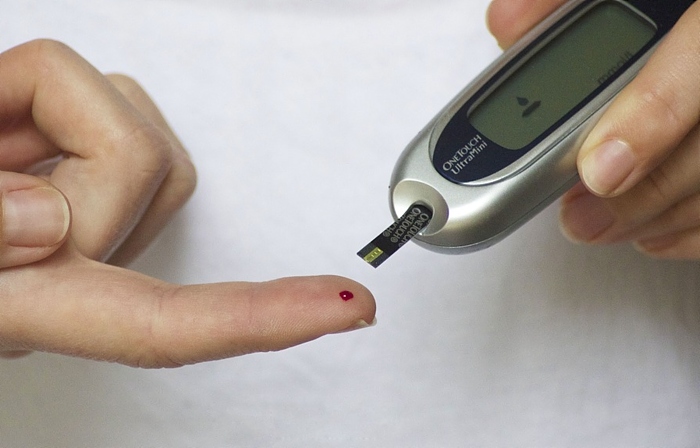
As we prioritise our wellbeing, staying on top of our health has never been more crucial.
For individuals living with diabetes, monitoring blood glucose levels is an essential part of their daily routine.
Among the various methods of monitoring, the HbA1c blood test plays a pivotal role in assessing long-term glucose control.
Understanding HbA1c Blood Test
The HbA1c blood test, also known as the glycated haemoglobin test, offers valuable insights into a person’s average blood glucose levels over the past two to three months.
This test measures the percentage of glucose bound to haemoglobin in the blood. Haemoglobin is a protein found in red blood cells responsible for carrying oxygen throughout the body.
When glucose attaches to haemoglobin, it forms glycated haemoglobin (HbA1c).
The Significance of HbA1c
Maintaining a stable and healthy blood glucose level is crucial for individuals with diabetes to prevent complications and manage their condition effectively.
The HbA1c test provides an overall picture of how well diabetes is managed over time.
Unlike self-monitoring of blood glucose (SMBG) tests, which offer a snapshot of blood sugar levels at a specific moment, the HbA1c test evaluates long-term trends.
This makes it a valuable tool for both patients and healthcare providers to adjust treatment plans and assess the effectiveness of current therapies.
Benefits of Home Diabetes Testing
In the past, individuals had to visit a healthcare facility to get their HbA1c levels checked.
However, with advancements in technology, home diabetes testing kits have become widely available, empowering individuals to monitor their HbA1c levels conveniently and regularly from the comfort of their own homes.
1. Convenience and comfort
Home diabetes testing eliminates the need for frequent trips to the doctor’s office or a lab, saving time and effort. This accessibility encourages individuals to test their HbA1c levels more frequently, leading to better self-awareness and motivation to manage diabetes effectively.
2. Timely intervention
Regular monitoring of HbA1c levels at home allows individuals to detect any fluctuations or upward trends promptly. By identifying potential issues early on, patients and healthcare providers can intervene with appropriate adjustments to medication, diet, or lifestyle, thus reducing the risk of complications associated with uncontrolled diabetes.
3. Empowerment through knowledge
Home diabetes testing puts the power of information into the hands of individuals. By tracking their HbA1c levels regularly, people can better understand how their daily choices impact their diabetes management. This knowledge empowers them to make informed decisions about their diet, exercise, and overall lifestyle.
4. Engaging healthcare providers
Home diabetes testing facilitates more informed and productive conversations between patients and healthcare providers. When individuals track their HbA1c levels regularly, they can discuss the results and collaborate with their healthcare team to devise personalised diabetes management plans.
5. Cost-effectiveness
While HbA1c tests are vital for diabetes management, frequent visits to healthcare facilities for testing can be expensive. Home diabetes testing kits offer a cost-effective alternative, especially for those without comprehensive health insurance coverage.
Tips for Accurate Home Diabetes Testing
While home diabetes testing is a valuable tool, it is essential to ensure accuracy and reliability:
1. Follow instructions: Read and follow the instructions provided with the testing kit carefully to ensure accurate results.
2. Check kit expiry: Make sure the testing kit is within its expiration date, as using expired materials may lead to inaccurate readings.
3. Control solutions: Some kits include control solutions that allow you to check the accuracy of the test. Utilise these solutions periodically to verify the test kit’s reliability.
4. Consistency: For the most accurate trend analysis, try to conduct the test at the same time of day and under similar conditions each time.
5. Share with healthcare provider: Share your home testing results with your healthcare provider during regular check-ups to assess your overall diabetes management plan.
Home diabetes testing, particularly the HbA1c blood test, plays a pivotal role in effective diabetes management.
By providing individuals with easy access to valuable information about their blood glucose levels, it empowers them to make informed decisions about their health and engage in proactive conversations with their healthcare providers.
The convenience, cost-effectiveness, and empowerment that come with home diabetes testing ultimately contribute to better long-term health outcomes for those living with diabetes.
(diabetes – pic by pixabay, free to use)


















Recent Comments